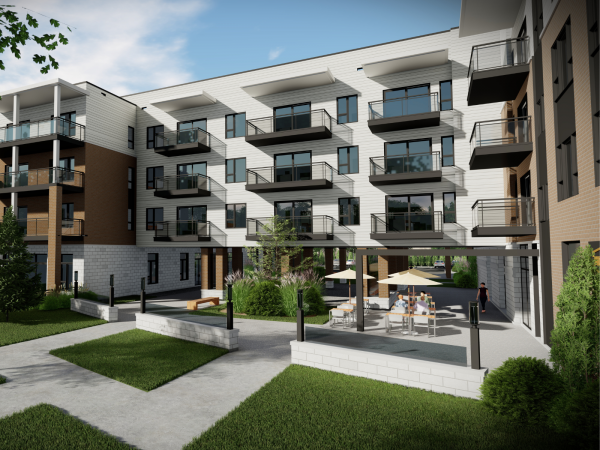Sustainable Living: Eco Homes in Property Market

In today's world, the quest for sustainable living solutions has never been more critical, especially in the property sector. With more buyers focusing on environmentally friendly choices, the idea of homes is on the rise, transforming the way people think about buying houses. From appliances that conserve energy along with sustainable building materials, these forward-thinking residences not only help reduce the ecological footprint but also provide monetary advantages in the future.
For new homeowners, maneuvering through the housing market can be overwhelming. Grasping the intricacies of buying a house—such as getting pre-approved for a home loan, avoiding common pitfalls, and recognizing the importance of comprehensive property evaluations—is essential for your success in achieving your real estate goals. In this piece, we will look into important guidelines and developments, guiding you through the process of acquiring, marketing, or investing in green homes while keeping sustainability at the forefront of your decisions.
Starting Out: Essential Tips for Homebuyers

As a new homebuyer, getting through the housing market can be intimidating. Getting acquainted with the important procedures involved in the purchase of a home is essential for making smart choices. Start by evaluating your finances, such as your credit score, budget, and deposit choices. These factors will play a pivotal role in determining which homes are within your reach and help you form reasonable goals for your search.
Next, it's crucial to get pre-approved for a home loan. This not only demonstrates your commitment as a buyer but also gives you a clear idea of how much you can afford. Lenders will examine your financial standing, which will ultimately guide your home search. Additionally, getting pre-approved can strengthen your position in negotiations, making sellers more likely to entertain your proposals over others who do not have pre-approval.
Once you are financially equipped, start your search for a home that fulfills your needs. Take time to determine what you're looking for, such as the area, size, and key characteristics. Conduct comprehensive research on locations and monitor real estate trends. With a clear view of the real estate landscape and your own needs, you'll be in a stronger position to find a home that aligns with your needs but may also act as a good investment for the future.
Clever Strategies for Selling Your Home
As selling your home, grasping the market dynamics is vital. Investigating the local market trends can greatly influence your selling strategy. Look into recent sales in your area to get a sense of the average selling price and the time homes are on the market. This information can help you set the price of your home attractively, preventing it from remaining unsold for too long. Consider working with a knowledgeable real estate agent who can provide insights and help you formulate a marketing plan tailored to draw in potential buyers.
Home staging can also have a crucial role in how quickly and effectively your home sells. By organizing and styling your space, you can create an inviting atmosphere that allows buyers to envision themselves living there. Minor updates, such as a fresh coat of paint or some landscaping improvements, can boost your home's appeal. Additionally, expert staging services can display your home’s best features and make it distinctive in listings and open houses.
Finally, think about your timing when listing your home. Certain seasons may offer optimal selling conditions, with spring and summer generally being more favorable for real estate sales. However, each market can vary, so it’s essential to assess the demand in your specific location. Moreover, being adaptable with showings and open houses can enhance the chances of engaging potential buyers, as convenience holds a major role in the purchasing decision.
Investing in Real Property: Essential Points to Ponder
When considering a real estate investment, it is important to know your financial goals and risk tolerance. Figure out whether you are aiming for quick gains through house flipping or a long-term strategy such as rental income. Every method has its advantages and drawbacks, so aligning your investment strategy with your financial objectives is key. For new investors, this also includes getting pre-approved for a home loan, as it not only clarifies your financial limits but also shows to sellers that you are a serious buyer.
Economic factors play a significant role in real estate investments. Knowing how interest rates affect property values can provide understanding into the best times to invest. Pay attention to current trends and forecasts, as fluctuations in the market can present chances or risks. https://bridges-frantzen.technetbloggers.de/a-impact-of-curb-appeal-in-property-transactions 's also essential to analyze local neighborhoods for growth potential, amenities, and demographic shifts, as these factors will greatly affect rental demand and value increase.
To sum up, be aware of the hidden costs of owning a home and maintenance. While the initial purchase price is important, additional costs like taxes on property, insurance, and unexpected repairs can impact your bottom line. Developing a budget that accounts for these costs will help ensure that your investment remains profitable over time. Additionally, think about integrating sustainable options into your properties, as they not just attract green-minded purchasers but can also increase your property's worth in today's market.
